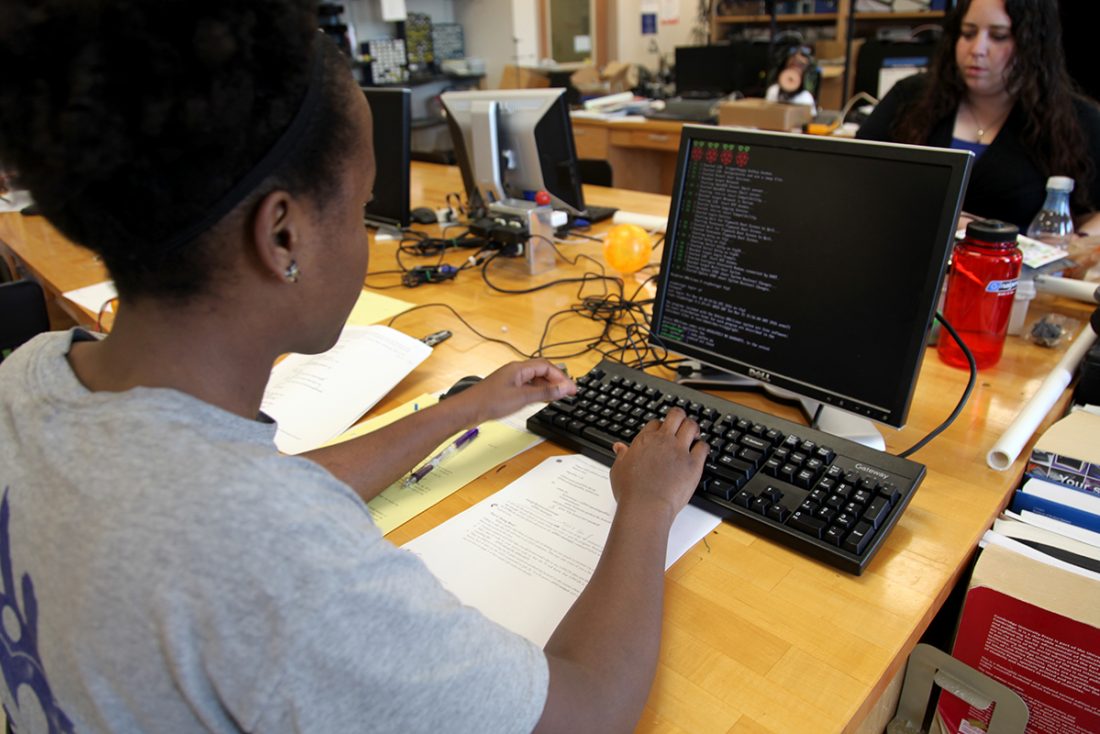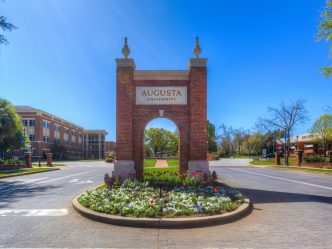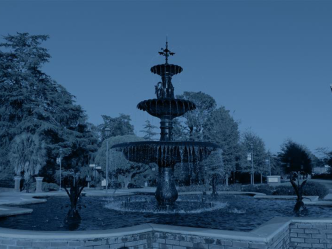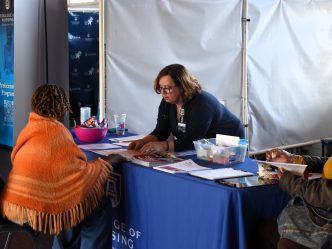The College of Science and Mathematics has received a renewal of a five-year Workforce Opportunities in Regional Careers (WORC) I grant. The US Department of Energy Environmental Management and National Nuclear Security Administration funded this grant to develop talents that meet critical needs of the nuclear workforce at the Savannah River Site.
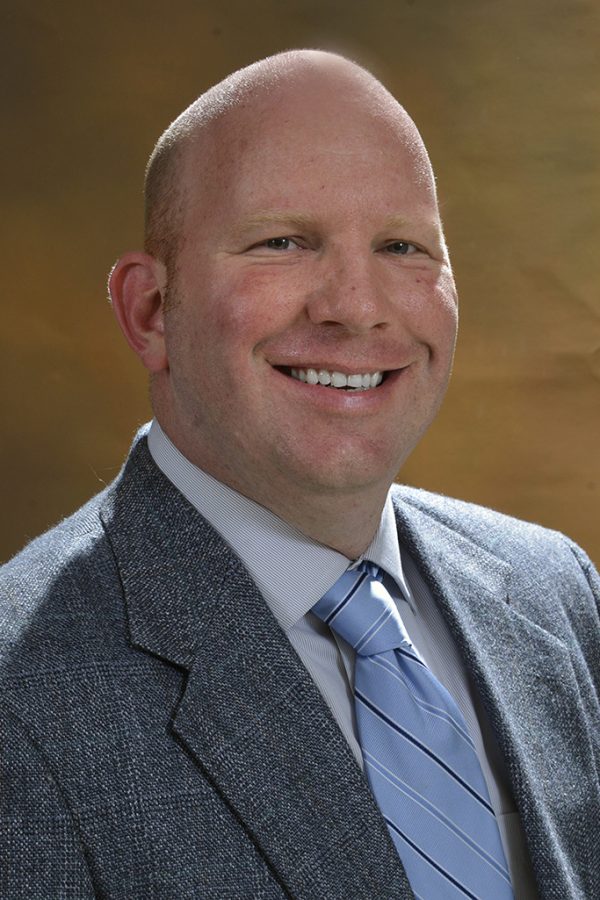
As one of several institutions participating in WORC I, Augusta University will be awarded $899,679 over the period from 2021-26 to fund scholarships to students with a demonstrated interest in a career in the nuclear workforce. Under the leadership of the principal investigator, Dr. Joseph Newton, assistant professor of physics, the grant will also help these students to gain research and work experience via SRS internships.
During the first grant cycle from 2016-21, Augusta University awarded 172 WORC I grant scholarships to 58 students in amounts up to $5,000 per semester. During this cycle, scholarships were awarded to chemistry and physics students in the nuclear science program. Thirty students completed one or more internships at the Savannah River Site through these connections.
How the grant is helping students
“This grant is intended to help students develop their skills for jobs in the nuclear industry, recognizing that there are many barriers that people may have to overcome to achieve that,” said Mindy Mets, director of regional workforce programs. Mets works with the SRS Community Reuse Organization, a private and nonprofit group that administers and oversees the distribution of the grant to participating institutions around the SRS. So far, the WORC I grant has helped several students pursue degrees in nuclear science who otherwise may have faced significant barriers.
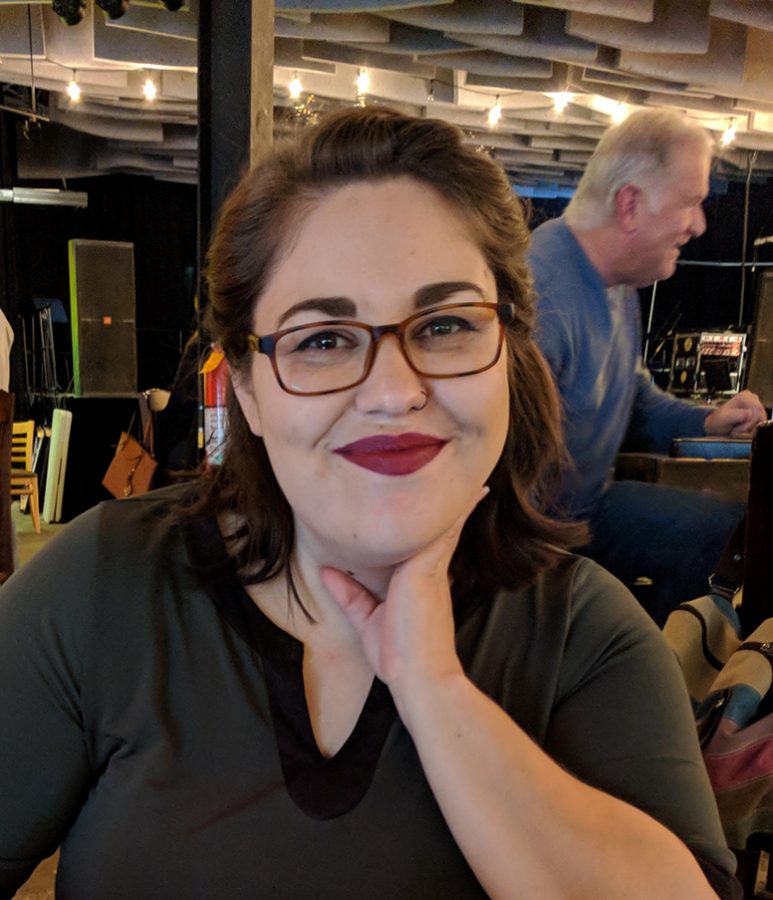
Victoria Ibarra is a chemistry student who expects to graduate in spring 2022. She initially studied at Georgia Tech but due to the high cost of living in Atlanta, Ibarra worked on her degree on and off for a long time. She moved back to Augusta when she obtained a job in the area and transferred to AU.
Unfortunately, her job was later impacted by COVID-19, which put her in a dire financial crisis. Just when she was considering putting her degree on hold again, Newton approached her. He informed her of the WORC I scholarship opportunity to explore nuclear science as a possible career path. She eagerly accepted the offer and stayed in the chemistry program at AU.
“The cherry on top of this story is that she has been selected for an internship with the Savannah River National Laboratory this summer,” Newton said.
“The intent of these scholarships and the activities provided by this program is to help people align with real jobs that are high paying and have an impact in support of DOE Environmental Management and the National Nuclear Security Administration,” Mets added.
Ibarra looks forward to gaining valuable experience from her internship with the SRNL this summer.
“The nuclear science program definitely opened up a wide range of opportunities that I wouldn’t have had or even known about,” she said.
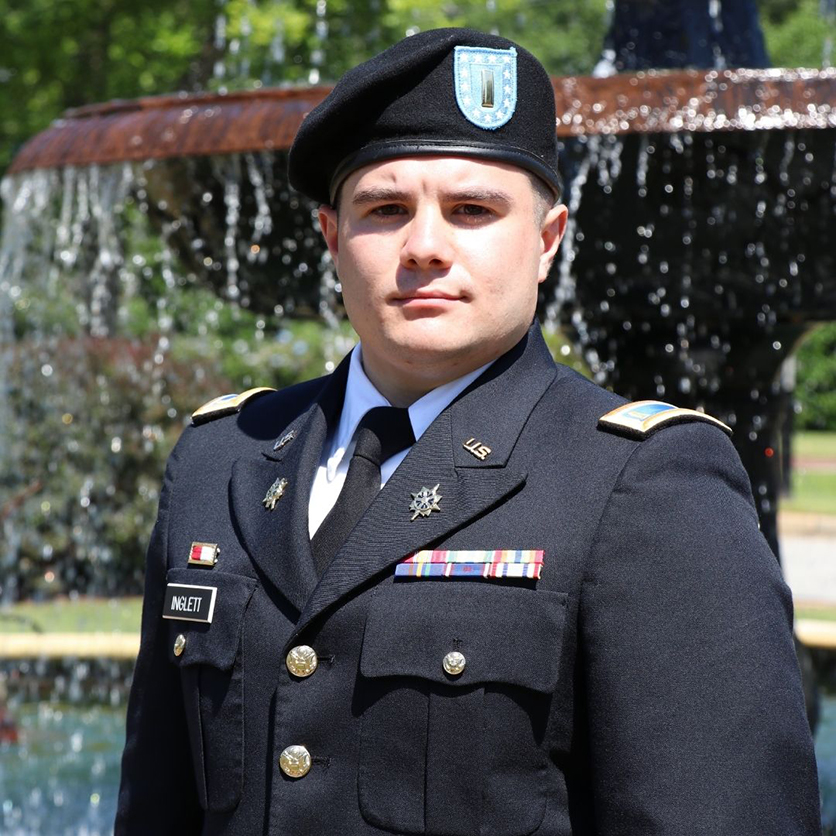
In addition to helping students who face barriers, the grant helps the nuclear science program recruit students who may otherwise have chosen a different path. Chase Inglett, for example, was enlisted in the Georgia Army National Guard before and during his time at AU. Specifically, he was a signals intelligence analyst. Although he was originally a computer science major, he decided to change to physics when he took Newton’s Physics I class and enjoyed it.
“Chase is a big win for the WORC grant and the Department of Chemistry and Physics because he’s among the brightest students that I have met in the past eight years that I have worked here,” Newton said. “He was selected to receive the Outstanding Undergraduate in Physics award last year and received the Outstanding Nuclear Science Student award this year.”
With a military career already in progress and a rigorous curriculum in physics, Inglett faced a major challenge. There were numerous times he had to “stay up late working on physics and then wake up early to go to physical training with ROTC.”
As a beneficiary of the WORC I program, he developed skills that qualified him for a summer internship at SRS. However, he could not participate due to his ROTC training obligation at Fort Knox, Kentucky. Inglett was able to balance his goals with his drive to excel, and he thanks both the physics faculty and ROTC cadre for being understanding and supportive.
Even though he could not participate in the SRS internship, his research involvement with Newton helped him gain valuable experience for his career field. Newton’s research has medical physics applications to test and verify radiation treatment plans before administering them to patients. Inglett worked with plastics that change color after absorbing doses of radiation.
As a recipient of the WORC I scholarship, Inglett had more freedom to focus on school and not worry as much about money. He graduated in spring 2021 with a perfect 4.0 GPA in physics with a concentration in nuclear science. He was commissioned as a second lieutenant in the US Army as a military intelligence officer in the Georgia National Guard.
Inglett is focused on his career. He believes the nuclear program and the WORC I scholarship paved the way for him to secure his upcoming job at Savannah River Nuclear Solutions.
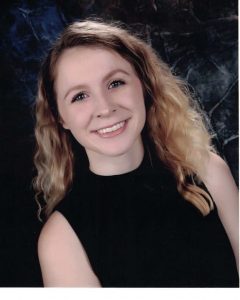
“I want to do a good job for SRNS,” Inglett said. “I may consider a nuclear engineering master’s degree in the future.”
Like Inglett, Sabrina Dowds originally declared a different major, biology, but when she experienced success in chemistry coursework, she switched her major to chemistry. Dowds considered a concentration in biochemistry at first. After speaking with Newton, she became interested in nuclear science with a concentration in chemistry.
In spring 2020, she graduated with her Bachelor of Science in Chemistry and obtained employment with Savannah River Tritium Enterprise. In March 2021, she was the guest speaker of the Society of Nuclear Scholars’ nuclear alumni workforce seminar.
“When Dr. Newton reached out to me to speak at the nuclear alumni workforce seminar, I was extremely honored,” Dowds said. “I received extremely positive feedback from the attendees of the seminar. In fact, one of the students reached out to Dr. Newton afterward, requesting information to change to the nuclear science program.”
The seminar complements her current focuses on the expected growth in employment needs of her employer. Her goal is to bring awareness to future hiring needs of SRS and the benefits of their employment, including the tuition reimbursement program.
“I’m a huge advocate for nuclear science because it’s interesting to learn. It’s a growing field; it’s safe and extremely regulated, and it provides a certain pride in the work scope,” Dowds said. She added the curriculum she studied at AU has been highly beneficial to her by preparing her for high-quality work, attention to detail, and an investigative mindset to pursue thorough understanding.
It is challenging to be prepared for a career in a field that involves SRTE, she said. “However, AU’s nuclear science program provided an extremely in-depth technical knowledge base that has allowed for a seamless transition between academia and manufacturing.”
“The WORC scholarship is an excellent program that allows you to gain experience and provides a competitive edge to your resume,” she said.
Dowds is currently enrolled part-time at Kennesaw State University, pursuing an online master’s degree in engineering management. Her graduate degree effort was made possible entirely through a tuition reimbursement program offered by her employer.
The grant helps students financially and academically to obtain their nuclear science degree. The graduated students then continue to grow their expertise in their career field. The grant brings a positive ripple effect into the nuclear future. Both Dowds and Adam Judy, another graduate of the nuclear science program, are obtaining graduate-level nuclear degrees with the help of their employers.
Judy graduated ahead of Dowds in the spring of 2019 with his Bachelor of Science in Physics. He now works at SRNL. With the help of his employer’s tuition reimbursement program, Judy enrolled in North Carolina State University’s Master of Science in Nuclear Engineering program. Like Dowds, he was also invited to speak to students during the AU Alumni Workforce Seminar.
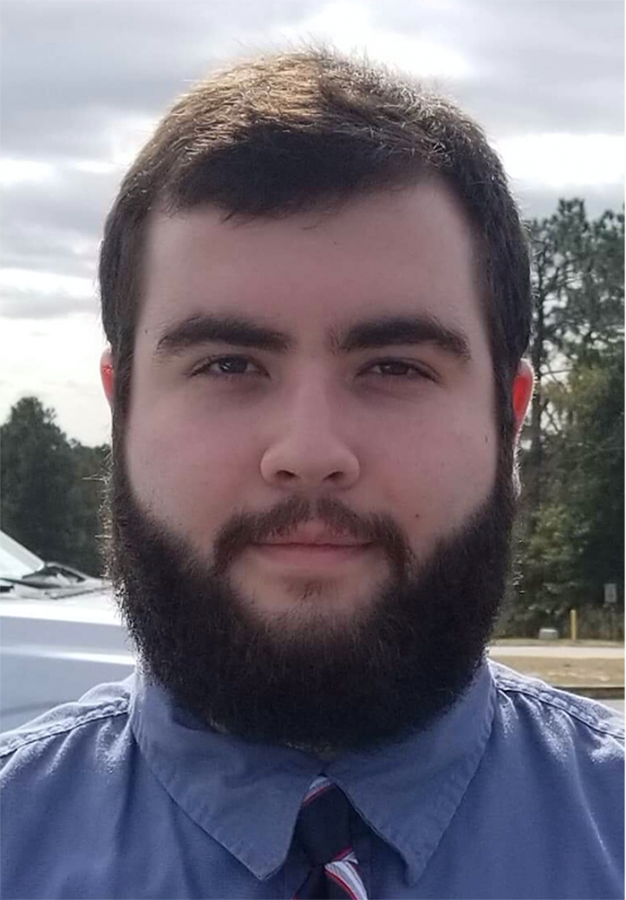
Judy originally attended AU for biological sciences with the intention of pursuing a career in medicine, but he “absolutely” appreciates the fact that he changed his major. “I took my intro physics classes and got to know the physics professors who informed me about the nuclear science concentration,” he said. “It was the right move for me.”
The WORC I scholarship provided Judy with tuition and textbooks. Without it, Judy believes that he would have been forced to get a full-time job somewhere to cover tuition and could not have devoted his time and full energy to studying.
Judy was able to secure two internships at SRS. In the summer of 2018, he worked with the analytical development group on mostly spectroscopy-related projects and was introduced to various applications of nuclear chemistry.
The following year, he worked with the nuclear measurements group, a sister group to analytical development. The second internship encompassed various projects, from learning to use various detectors and associated software to programming and performing non-destructive assay analysis on various objects.
“My overall experience with both internships was great,” he said. “I was challenged to learn new things and to grow both as a scientist and a leader.”
At his current job with SRNL, Judy’s primary duty is to perform NDA analysis in various facilities across the site as needed by the lab’s customers. NDA ties in perfectly with his experience as a nuclear science student at AU.
“A large portion of my job is rooted in the fundamentals that I learned from Dr. Newton’s Nuclear Measurements and Introduction to Nuclear Science classes,” he said.
Students coming out of the nuclear science program through the WORC grant are not only likely to work in national programs and activities that support the nation but also in the educational community, according to Mets.
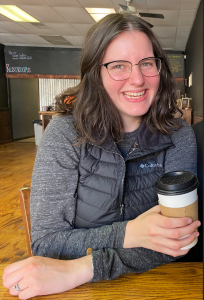
“Chemistry and physics teachers who are working in local high schools have a unique knowledge of our region’s nuclear industry because of the program at Augusta University,” Mets added, reflecting on the importance of educating future educators.
For example, Courtney Bernal graduated with a Bachelor of Science in Physics with a Nuclear Science concentration and a Master of Arts in Teaching (MAT) in 2019. She currently teaches calculus-based AP physics and algebra-based AP physics at Evans High School.
Bernal, a first-generation college student and a WORC I scholarship recipient, attributes much of her accomplishment to the WORC I scholarship. Not only did it help her become more financially stable, but it also helped shape her as a teacher.
“Dr. Newton, along with the other professors in the department, taught me more about teaching physics than anyone else,” she said. “I carry small bits of each of their styles with me into the classroom every day.”
Bernal feels that the nuclear track prepared her to better inform her students of the jobs that they can get in the field and has given her a true passion that she can communicate with them.
“My passion builds up in me when I get to the classroom, and the kids ask so many fantastic questions. I’ve yet to encounter one that I was not prepared to answer,” she said. “I have several students considering the nuclear field after having me as a teacher.”
Kelsey Minter graduated in December 2016 with a Bachelor of Science in Chemistry and a nuclear science concentration. Like Bernal, Minter received an MAT. She currently teaches chemistry and physics at Greenbrier High School in Evans.
When teaching the chemistry performance standard to “construct an explanation based on scientific evidence of the production of elements heavier than hydrogen by nuclear fusion,” Minter finds it useful to introduce the National Nuclear Data Center’s Chart of Nuclides, a resource that she discovered while learning about nuclear science at AU. The chart is something that her students have never seen before and can be daunting to look at initially, but it provides quality isotopic information about all the elements.
“I have even been able to apply it when discussing stable vs. unstable isotopes, natural abundance, and average atomic mass,” Minter said.
For the upcoming 2021-22 school year, she plans to incorporate binding energy as a means for discussion as it relates to the standard and the different forms of decay due to the unstable nuclei that could have been formed through fusion.
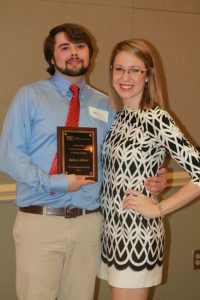
On the other hand, the physics standards go more in-depth with the nuclear science knowledge requiring the development and use of models to explain, compare, and contrast radioactive decay. Minter finds this topic more cohesive if all of it is taught together, so she also incorporates these standards into her chemistry lesson to ensure her students are given a solid foundation in nuclear science.
“Because of the nuclear science program at Augusta University, I find it easy to incorporate and manipulate these topics where other teachers might not have the desire or know-how,” she said. “With the growth of Plant Vogtle, SRS initiatives, and AU’s cancer research center, I found my own teaching initiative: to put more focus on nuclear science and its application at the high school level and maybe spark students’ interests and help them realize the opportunities around. I wouldn’t say that I had many challenges academically before I heard about the nuclear science program and was awarded a WORC I scholarship, but they presented a challenge that I wanted to take on.”
Kelsey Minter’s work is important because it improves the general knowledge of nuclear science in the area to support the surrounding nuclear establishments so that greater advances in the nuclear industry can be made.
The nuclear science program not only paved the career path for Minter but also was where she got to know Zachary Minter, a fellow chemistry student whom she later married.
“A friend told him about the nuclear science track and the associated opportunities at Plant Vogtle, and so he took Introduction to Nuclear Science,” she said. “At that point, he had very little experience with nuclear science, but it intrigued him so much that he decided to extend his graduation date to finish the track.”
Zachary Minter accepted a job as a chemical technician at Plant Vogtle and now works as a chemistry supervisor. Depending on his availability outside of work, Kelsey encourages him to participate in nuclear outreach programs, including one at Greenbrier High School, where he helped inform physics and physical science students about nuclear energy and Plant Vogtle.
The grant cycle
The renewal of the WORC I grant will continue the scholarship program for juniors and seniors interested in careers in the nuclear workforce. This grant complements the accompanying WORC II grant, which provides scholarships for freshman and sophomore students interested in exploring opportunities in the workforce. The WORC II grant awarded to AU in 2020 also funds a program called WORCshop. WORCshop is an interdisciplinary professional development opportunity for middle school and high school physical science, chemistry and physics teachers that runs from the beginning of June to December of 2021.
Bernal will be invited as one of the guest speakers and is participating as one of the teachers who have enrolled in the WORCshop.
“If you turn around and look at the other side, the WORCshop that Augusta University is also starting this summer,” Mets said, “you see the development of a pipeline for talent coming into the programs. WORCshop is helping educators relate science teacher standards to real-world problems like those addressed at SRS.”
Bernal tells aspiring students that pursuing the nuclear track brought her pure joy. “As a nuclear student, I was exposed to a plethora of useful information, and it felt even more beneficial to me as I live in an area where the nuclear industry is so prevalent.”
“The main piece of advice I would give them is to not cut corners. Your professors will know that you aren’t trying, and it will reflect in your grade,” Bernal said. “If you fully immerse yourself, you will learn to love what you’re learning and will want to share it with others.”
The WORC II grant also allows students and educators to learn about career paths that are available in the nuclear workforce. It is focused on recruiting freshmen and sophomores in other STEM programs of study to enter into the nuclear field. WORC II also pursues a goal of middle school/high school educator outreach. Read more about the WORC II grant.
Combined, the WORC I and WORC II grants assist students and help them progress from the beginning to the end of college and beyond. This diagram summarizes the full cycle of support provided by the two grants.
 Augusta University
Augusta University
